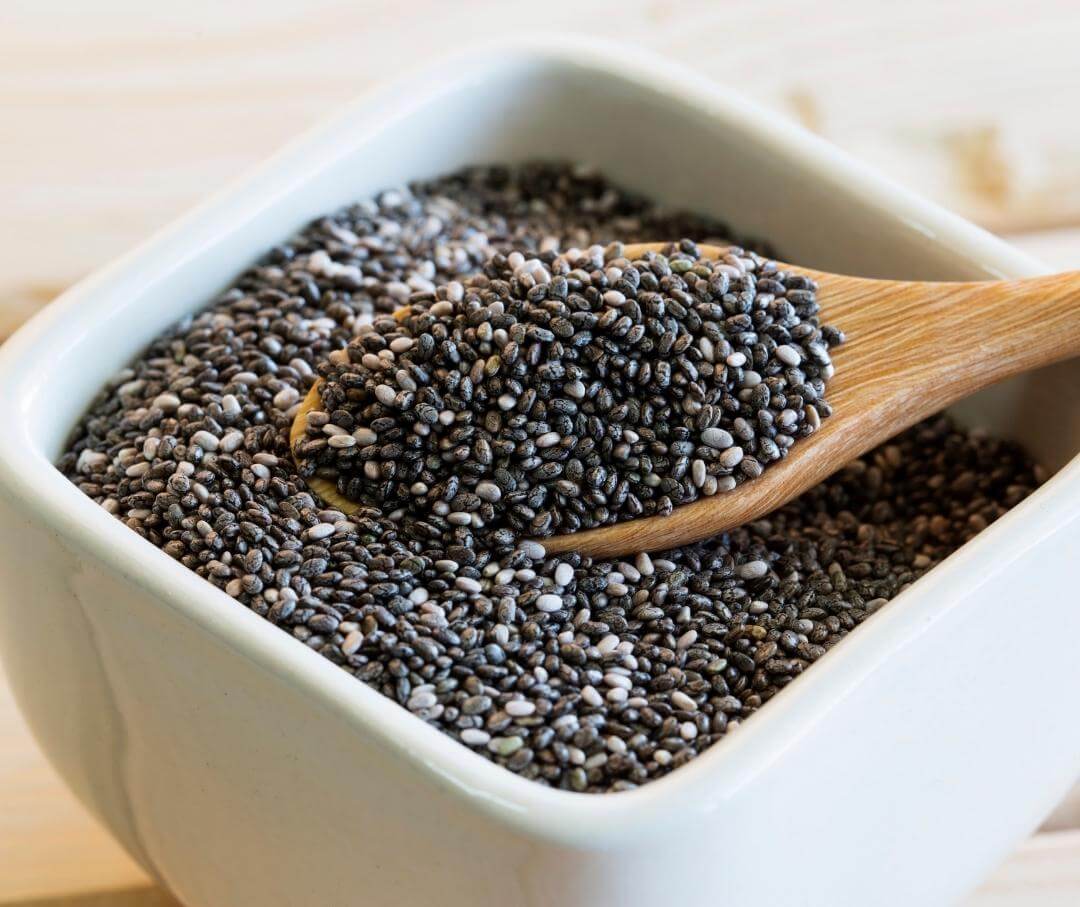Carrots, scientifically known as Daucus carota, have a rich history of over 5,000 years. They were originally cultivated in Central Asia1 and grown for their aromatic leaves and seeds rather than their roots. Over time, selective breeding led to the development of the orange-colored, sweet, and crunchy roots you’re familiar with today.1
Carrots have been around for centuries, and for good reason. While many people have criticized this hearty veggie for its high sugar and carbohydrate content, carrots provide a plethora of health benefits.
{{mid-cta}}
Carrots Nutrition Facts
Carrots are enjoyed for their sweet taste and crisp texture and are a delicious addition to various dishes, but they’re also a nutritional powerhouse. They are packed with essential vitamins, minerals, and fiber and offer plenty of health benefits.
Here is the nutritional information for 100 grams of raw carrots, which equates to roughly two small ones:
- Protein: 0.9 grams
- Total Carbohydrates: 10 grams
- Dietary Fiber: 2.8 grams. Carrots are an excellent dietary fiber source essential for digestive health. Fiber helps prevent constipation, regulate bowel movements, and support a healthy digestive system2
- Sugars: 4.7 grams
- Total Fat: 0.2 grams. Carrots are virtually free of saturated fat and cholesterol, making them a heart-healthy food choice3
- Saturated Fat: 0 grams
- Trans Fat: 0 grams
- Vitamin A: 835 micrograms. Carrots are known for their high beta-carotene content, which the body can convert into Vitamin A. Vitamin A is crucial for maintaining healthy vision, skin, and immune function4
- Vitamin C: 5.9 milligrams. While not as high as some other fruits and vegetables, carrots still provide a moderate amount of vitamin C, an important antioxidant for immune function and skin health5
- Potassium: 320 milligrams
- Calcium: 33 milligrams
- Calories: 41
These values can vary slightly depending on factors such as the specific variety of carrots and growing conditions. Carrots are rich in beta-carotene and are vital for fulfilling the body’s need for vitamin A and fiber. Carrots are a satisfying and wholesome snack with a low-calorie profile, making them an excellent choice for individuals focused on weight management. The potassium content also supports heart health by regulating blood pressure.
11 Health Benefits of Carrots Explained

Carrots are a delicious vegetable that packs a nutritional punch, offering several health benefits. From promoting eye health to supporting immune function, this vibrant orange root vegetable is a worthwhile addition to a balanced diet, but what are carrots good for? Some of the notable reasons why you should eat carrots include:
- Lowers Cholesterol: The soluble fiber in carrots, known as pectin, may lower cholesterol levels by binding to cholesterol molecules and aiding in their excretion6
- Boosts Immunity: Vitamins A and C play a key role in maintaining a strong immune system, aiding the body’s defense against infections5
- Promotes Healthy Vision: Vitamin C is essential for maintaining eye health and preventing conditions such as night blindness.7 One large carrot can also provide 100% of the daily recommended intake of vitamin A, which can help protect against age-related macular degeneration.4 Carrots also contain the antioxidants lutein and zeaxanthin, which protect the human eye’s retina and lens
- Lowers the Risk of Cancer: The antioxidants and phytochemicals in carrots may play a role in reducing the risk of certain cancers, including lung, colorectal, prostate, and leukemia. These compounds neutralize free radicals in the body, which can contribute to cancer development.8 Carrots also contain lycopene, which has the potential to fight cancer, like stomach, prostate, lung, and breast cancer, as well as being linked to vascular health12
- Reduces the Risk of Heart Disease: The potassium in carrots helps regulate blood pressure, contributing to overall cardiovascular well-being
- Enhances Weight Management: Carrots are low in calories, high in fiber content, and have a low glycaemic index, which makes them a nutritious and satisfying option for those seeking to manage their weight or achieve weight loss.
- Might Boost Brain Health: The antioxidants and nutrients in carrots may have cognitive benefits, supporting brain health and function. Carrots may be particularly beneficial for older adults more susceptible to brain-related diseases. However, some neurodegenerative diseases, like Alzheimer’s, can begin in individuals as young as 30, so it’s best to include nutrient-rich fruits and vegetables as early as possible9
- Helps Ease Constipation: The high fiber content in carrots promotes digestive health, preventing constipation and maintaining regular bowel movements2
- Helps Manage Blood Sugar Levels: The fiber in carrots can regulate blood sugar levels by slowing the absorption of sugar and improving insulin sensitivity. Carrots also have a low glycemic index, typically ranging between 16 and 41. Eating raw carrots results in a slower and more gradual increase in blood sugar compared to foods with a higher GI
- Promotes Skin Health: The antioxidants contribute to healthy skin by combatting free radicals and promoting a glowing complexion5
- Rich in Vitamins: Besides vitamins A and C, carrots are an excellent source of vitamin B6, niacin, and vitamin K
Including carrots in your regular diet can be a flavorful and versatile way to maximize these benefits.
<p class="pro-tip"><strong>Also Read: </strong><a href="are-carrots-good-for-diabetes">Are Carrots Good for Diabetes? 5 Surprising Benefits</a>.</p>
Are Carrots Good for You? Possible Side Effects
Yes, carrots are good for you. They’re packed with essential vitamins and minerals and contribute to maintaining healthy vision, skin, and a robust immune system. This antioxidant-rich vegetable supports immune functions and combats oxidative stress, reducing the risk of chronic diseases.
Believe it or not, you can turn orange from eating too many carrots. While most people can tolerate them, excessive consumption may lead to carotenemia. This harmless condition results in a yellow-orange skin discoloration, particularly noticeable on the palms and soles.10 Carotenema occurs due to the accumulation of excess beta-carotene in the body, but you can reverse it by reducing your carrot intake.
Additionally, for those with certain medical conditions, like kidney issues, consuming high amounts of potassium-rich foods may require moderation to avoid potential complications.
Which Is Better: Organic Carrots or Conventional Carrots?
While there’s often a lot of buzz around organic produce, their nutritional profile is mostly the same as conventional carrots.11 Organic farmers grow carrots without synthetic pesticides or fertilizers, relying on natural methods to control pests and enhance soil fertility. They also avoid genetically modified organisms (GMOs), and organic farming cultivation practices often prioritize environmental sustainability.11 Choosing organic carrots may appeal to those who want to reduce exposure to synthetic chemicals and support sustainable farming practices.
On the other hand, traditional farmers grow carrots using conventional agricultural methods that may involve synthetic pesticides and fertilizers. While they may be more affordable, some individuals may have concerns about potential pesticide residue. It’s worth noting that regardless of farming methods, carrots share similar nutritional values and quality.11 Ultimately, deciding between organic and conventional carrots depends on personal preferences and budget. Those concerned about pesticide residue can simply wash and peel carrots before eating.
Ways to Include Carrots in Your Everyday Diet

Carrots are a nutritious vegetable you can easily add to your everyday diet — and they’re more versatile than you might think. From snacks to main courses and even desserts, their nutritional value makes them a valuable component for those aiming to maintain a balanced and health-conscious lifestyle. Here are several delicious ways to make carrots part of your diet
- Salads: Grate or julienne carrots to add color and sweetness to salads. They pair well with various greens, fruits, and protein sources
- Dips: Add carrots to your favorite hummus or roasted vegetable dip for a tasty twist on the classic
- Soups and Stews: Dice or slice carrots and add them to soups and stews for extra nutrients and flavor. They contribute a subtle sweetness to the savory depth of the dish
- Roasted Vegetables: Roast carrots in the oven or air fryer with olive oil, herbs, and spices for a delicious side dish. Roasting enhances their natural sweetness and creates a caramelized exterior
- Side Dish: Steam or boil carrots and toss them with butter or herbs for a simple and nutritious side dish
- Grated Toppings: Sprinkle some grated carrots over yogurt, cereal, or oatmeal to add a sweet and crunchy element to your breakfast
- Raw Snacking: Enjoy carrots in their natural state as a crunchy and refreshing snack. Slice them into sticks or rounds for a convenient on-the-go option. Serve them with a refreshing dip like hummus or tzatziki for a satisfying snack
- Baked Goods: Incorporate finely grated carrots into muffins, cakes, cupcakes, or bread for a moist texture and added nutritional value
- Stir-fries and Sautéed Dishes: Add sliced or julienned carrots into stir-fries or sauteed dishes. Their vibrant color and crunchy texture can complement a wide range of savory flavors
- Grated: Add grated carrots to sandwiches, wraps, burritos, salsas, pitas, and burgers for extra nutrients
- Juices and Smoothies: Blend carrots into fresh juices or smoothies for a nutrient-packed beverage. Combine them with fruits and greens for a tasty and healthy drink
If you’re not fond of eating carrots on their own, there are plenty of ways you can add them to your favorite dishes or disguise them in tasty sweet treats and smoothies.
Learn More About How to Improve Blood Sugar Health With Signos’s Expert Advice
Nutrition is vital for maintaining overall health and well-being. Carrots offer a host of health benefits, from improving skin to controlling blood glucose levels. Making carrots part of your everyday diet can help you manage your health and prevent chronic conditions.
If you have questions about your diet and which nutrients to include for optimal health, seek advice from your healthcare provider or a registered dietitian. In the meantime, learn more about healthy eating through expert advice on Signos’s blog. Take a quick quiz to determine if Signos is a good fit for you.
<p class="pro-tip"><strong>Learn More: </strong><a href="fruits-vegetables-colors">How Eating the Rainbow Can Benefit Your Health + How to Do It </a>.</p>
- Item 1
- Item 2
- item 3
Topics discussed in this article:
References
- Kulikowski, M. (2023) What makes a carrot orange?, NC State News. Retrieved from: https://news.ncsu.edu/2023/09/what-makes-a-carrot-orange/
- Barber, T.M. et al. (2020) ‘The health benefits of dietary fibre’, Nutrients, 12(10), p. 3209. doi:10.3390/nu12103209.
- Heart-healthy foods: Shopping list (no date) U.S. Department of Health and Human Services. Retrieved from: https://health.gov/myhealthfinder/health-conditions/heart-health/heart-healthy-foods-shopping-list
- Vitamin A and carotenoids (2023) NIH Office of Dietary Supplements. Retrieved from: https://ods.od.nih.gov/factsheets/VitaminA-HealthProfessional/
- Vitamin C (2023) Harvard School of Public Health. Retrieved from: https://www.hsph.harvard.edu/nutritionsource/vitamin-c/
- Melgares, P. (2021) Carrots may be good for your heart, too, K-State Research and extension. Retrieved: https://www.ksre.k-state.edu/news/stories/2021/01/carrots-may-be-good-for-your-heart.html
- Carrots & Eye Health: Myth or fact? (2020) University of Utah Health. Retrieved from: https://healthcare.utah.edu/healthfeed/2020/02/carrots-eye-health-myth-or-fact
- Carrots: Rich supply of carotenoids (2021) American Institute for Cancer Research. Retrieved from: https://www.aicr.org/cancer-prevention/food-facts/carrots/
- Brain health for older adults, Redstone Highlands Communities. Retrieved from: https://redstone.org/aging-and-protecting-brain-health
- UAMS Health (2019) If you eat too many carrots, will your skin turn orange?, UAMS Health. Retrieved from: https://uamshealth.com/medical-myths/if-you-eat-too-many-carrots-will-your-skin-turn-orange/
- Vigar, V. et al. (2019) ‘A systematic review of organic versus conventional food consumption: Is there a measurable benefit on human health?’, Nutrients, 12(1), p. 7. doi:10.3390/nu12010007
- Przybylska, S., & Tokarczyk, G. (2022). Lycopene in the Prevention of Cardiovascular Diseases. International journal of molecular sciences, 23(4), 1957. https://doi.org/10.3390/ijms23041957































